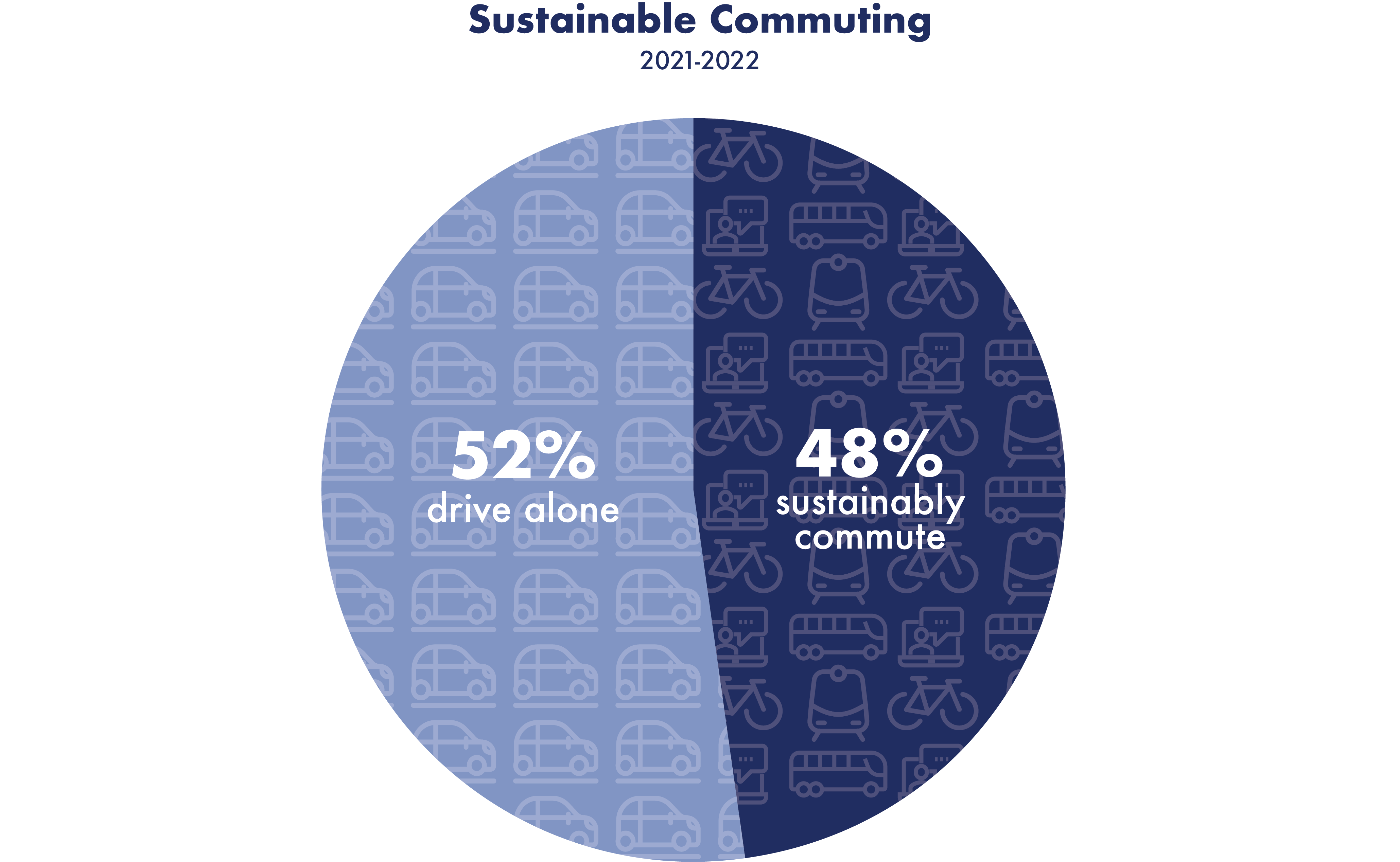Transport accounts for roughly 28 percent of all greenhouse gas emissions. As transport is a function of economic growth, the city of Atlanta and Emory are committed to reducing emissions through investment in and implementation of sustainable transportation solutions.
So Far
- Commuting emissions account for ~11% of Emory’s GHG emissions.
- In 2005, Emory created the Emory Shuttle system, which transports around 3 million riders annually to and from Emory facilities for free. The shuttles run on a B5 biofuel blend made from campus and hospital used cooking oils.
- Emory developed a robust commute options program that offers resources and incentives to employees who commute by walking, biking, carpooling, vanpooling and public transit.
- Emory Fleet Services offers vehicle rentals for eligible faculty and staff starting at $25/day.
- Emory supports a bicycling culture for those who cycle to work and around campus, offering a bike rental program, staff and student bicycling social groups, and a free bike repair shop on campus.
 Click image for a larger view
Click image for a larger view
Today
- In 2019, Emory’s Transportation and Parking Services installed a new electric vehicle charging station on main campus. Since its installation, the unit has contributed to a 17% decrease in GHG emissions.
- A multi-stakeholder plan for trail networks connecting Emory’s Druid Hills campus to nearby existing and planned trails was developed in 2018. PATH and Emory recently installed the newest section of the PATH that now links the South Peachtree Creek Trail to Emory’s Clairmont Campus, forking on the other side to continue along both N. Druid Hills Rd. and Haygood Dr.
- Emory’s Transportation & Parking Services oversees the Clifton Corridor Transportation Management Association (CCTMA), which partners with Georgia Commute Options to offer programs and incentives that help to make commutes easier and more sustainable.
- LED lighting retrofits on 8 parking decks have saved a cumulative $853,000 and 12,400,000 kWh.
- Emory’s fleet of vehicles includes 141 fully electric vehicles, which include cars, trucks, and golf carts.
- 48% of Emory students use sustainable transportation options as their primary mode of transportation.
- Emory’s FY2023 emissions inventory report outlining these emissions declines and others can be viewed here.
Tomorrow
Emory will continue to support commuting and traveling more sustainably in order to reduce traffic, improve air quality and human health, and reduce the emission of greenhouse gases. Emory’s 2025 Sustainability Vision commits Emory to:
- Support flexible workdays so that all non-essential personnel can telecommute at least one day per week.
- Improve air quality through enforcement of Emory’s No Idling Policy and other pollution prevention actions.
- Shift Emory University and Emory Healthcare vehicle fleets to meet national sustainable fleet certification standards.
- Extend incentives for sustainable commuting to students and expand bike shares and the Emory Shuttle.
- Establish a carbon-reduction program that allows carbon emissions from Emory-purchased air travel to be offset by investments in a sustainability revolving fund or similar mechanism.
